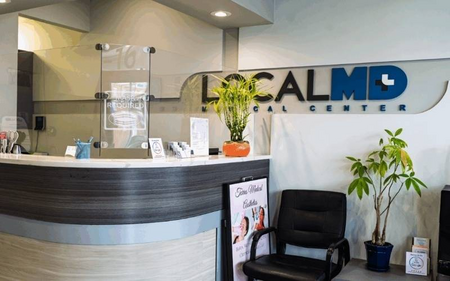The medical claim denial rate is almost at 11 percent in 2025 in the United States and the rest of the healthcare providers in the industry are experiencing the same. Although this number might not look large, the consequences of this situation in terms of finances are colossal-providers lose billions of dollars each year, and revenue cycles become enormous delays.
This continuous problem has compelled healthcare organizations to review their administrative process and embrace strategies that mitigate inefficiencies. One of these has been a Medical Billing Service that has proven effective in assisting healthcare practices to minimize claim denials by up to 30%.
Understanding the Burden of Claim Denials
One of the most vital barriers to healthcare revenue management is now claim denials. A denial happens when an insurance payer declines to compensate a provider for the services provided, which is usually because of incomplete information, coding mistakes, or failure to abide by the instructions of a payer.
Although most of the denials are appealable, it is very time-consuming and expensive. Studies indicate that re-filing claims that were rejected may cost the administration up to 25 percent more, and extend a reimbursement period by several weeks. With the high-pressure healthcare setting where steady cash flow is a key factor, frequent denials disrupt the financial framework and put operational resources under strain.
Here is where professional Medical Billing Services would come in, and the billing processes would be simplified and hugely reduce mistakes that cause denials.
Why Claim Denials Happen
In order to learn how Medical Billing Services help decrease the number of denials, one should mention the most widespread causes:
- Unfinished/Unverified patient information - Lack of insurance information, incorrect patient identities or old demographic data.
- Coding errors - An error in the ICD-10, CPT, or HCPCS code, which does not reflect the medical record.
- Not verifying insurance eligibility- Filing claims for services not in the plan of the patient.
- Failure to obtain prior authorization- Procedures or treatments that have not been authorized.
- Late filing- Failure to submit in time as per the requirements established by the payers.
- Failure to comply with payer guidelines - Not addressing the requirements that are specific to the individual insurers.
The number of such mistakes proves that denial management can no longer be a reactive approach. Rather than trying to resolve rejected claims, the providers must have proactive measures to avoid them initially, which is the task of specialized billing services.
The Role of Medical Billing Service in Reducing Denials
A professional Medical Billing Service combines technology, compliance know-how, and planned processes and procedures to decrease claim denials by a substantial margin. Here’s how:
1. Accurate Data Capture and Verification
Billing services make sure patient details, insurance details and the provider details are correctly entered and submitted. Patient information is checked by automatic systems to identify discrepancies with payer databases as early as possible. This helps to lower the denials due to clerical errors.
2. Comprehensive Coding Accuracy
Billing services have certified coders who are specialized to use the ICD-10, CPT and HCPCS codes with accuracy. In matching codes to clinical documentation, they minimize the risks of a mismatch that is a major cause of payer rejections.
3. Real-Time Eligibility Checks
In the current billing procedure, there is automated verification of eligibility tools that ensure that the insurance coverage is satisfied before filing claims. This active practice will avoid unjustified rejections on uncovered services or gapped policies.
4. Prior Authorization Support
Medical Billing Services also follow up on those procedures that need prior authorization and approvals are made. This measure will remove rejections that are associated with administrative lapses in approvals of treatments.
5. Compliance with Payer Guidelines
With the numerous policies that are in place that each insurance company is doing business with, it is overwhelming to stay in pace with the regular changes in regulations. Billing services keep a constant track of payer updates to ensure that claims are submitted according to the current requirements and minimize denials based on compliance issues.
6. Denial Analytics and Feedback Loops
Advanced billing solutions have analytics that monitor category, payer, or department denial trends. This knowledge enables the providers to know common problems and to take corrective measures and to form a continuous improvement loop.
Quantifying the Impact: 30% Fewer Denials
The effectiveness of Medical Billing Services is not only theoretical but also can be measured. Research has shown that organizations using professional billing partners have up to 30 percent fewer denials than those that have billing in-house.
This reduction translates into several tangible benefits:
- Improved cash flow – Faster reimbursements accelerate revenue cycles.
- Lower administrative costs – Reduced time and resources spent on reworking claims.
- Higher staff productivity – Clinical and administrative staff can focus on patient care rather than paperwork.
- Enhanced patient satisfaction – Fewer billing disputes and smoother financial interactions improve the overall patient experience.
Technology’s Role in Modern Billing
The introduction of advanced technology is another success driver for Medical Billing Services. AL/ML and robotic process automation are being used to spot anomalies, which may include pre-emptive denial and errors, in order to ensure claims do not reach insurers.
For example, predictive denial models can be used to analyze past data and determine the likelihood of rejection, thereby prescribing remedial action. Likewise, automation can eliminate manual repetitions of human error, thereby increasing efficiency.
Case Study: Healthcare Practice of a Mid-Sized Healthcare
Take the case of a mid-sized healthcare practice with a 15 percent claim rejection percentage. Having collaborated with a Medical Billing Service, they have introduced automated eligibility checks, coding audit and denial tracking dashboards.
In a period of one year, the denial rate was reduced to 10 percent and it was improved by 33 percent. This not only improved their revenue cycle but also relieved staff so that they could spend more time engaging with the patient.
Challenges in Adopting Billing Services
Even though there are evident benefits, there are certain healthcare providers who are reluctant to use outsourced billing services. These may be issues of security of data, cost, or loss of perceived control. Nevertheless, the current billing providers are HIPAA-compliant and use encrypted systems, which provide a transparent reporting dashboard, making them safe and accountable.
Moreover, the price of outsourcing can also be compensated by the higher level of revenue due to the reduced number of refusals and quicker reimbursements.
The Future of Denial Management
With the increasingly complicated healthcare regulations and a stricter reimbursement policy adopted by insurance companies, denial management will be a top priority among healthcare providers. The sphere of Medical Billing Services will also develop, and AI-based analytics, integration with electronic health record systems (EHRs) on an end-to-end basis will become a necessity.
The success of the future billing operations will be characterized by the ability to prevent errors and avoid corrections. Any healthcare provider who adopts such solutions today will be in a better position to survive in a world where efficiency and compliance are the key drivers.
Conclusion
The healthcare organizations are spending billions annually on claim denials, so there has never been a more urgent need to find effective solutions. Not only does a Medical Billing Service deal with the underlying reasons behind denials, but it is also a solution that implements superior tools and compliance measures that decrease denials by up to 30 percent. The outcome is increased revenue cycles, less administrative overhead, and better patient experiences.
The role of professional billing services will continue to grow as the year 2025 approaches making them irreplaceable accomplices in sustainable healthcare management.



Comments (0)
Login to post a comment.